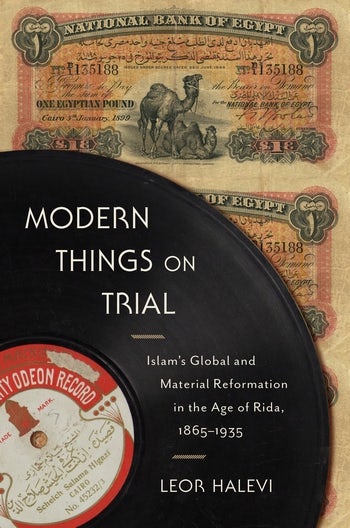Bottom-up fatwas – Rashid Rida and laissez-faire Salafism

In today’s media parlance, the term fatwa carries a lot of negative connotations and reactionary overtones. It has become a convenient keyword to sensationalise a news item about, say, a death threat, an edict to ban a book or work of art, or any dictatorial command that is meant to be obeyed without question.
Faced with so many negative associations, it has become very hard to link fatwa to any positive, enlightening development, let alone understand it as an instrument of accommodation or a vehicle of socio-economic reform.
But throughout Islamic history, fatwas (roughly translated as 'legitimate opinions of the scholars') played a significant role in providing intellectual guidance to the Muslim masses. Far from being instruments of threat or oppression used to impose a rigid ideological superstructure, fatwas from time to time helped Muslim societies reconcile their faith with the evolving socio-economic dynamics of the world in which they lived.
In other words, instead of being a ruling issued by a reactionary scholar who wanted society to stick to traditional ways of living, fatwas have served as vehicles of progress and innovation. As instruments of dynamism and accommodation, they have helped Muslims broaden their understanding of Islam, enabling them to adapt to the new realities of life without breaking with their religious tradition.
You may also like: Reforming Islam –Show me the Sharia
A means of furthering civilisation
At every critical juncture of the evolution of Islamic civilisation, scholars are seen to express enlightened opinions - quelling any doubts within society - to further the mission of civilisation building. A cursory look at the origin and evolution of Islamic jurisprudence, with its multiple streams and tributaries, shows us the role of fatwa in pushing back the frontiers of religious scholarship and bringing about social dynamism.

Leor Halevi’s Modern Things on Trial: Islam’s Global and Material Reformation in the Age of Rida, 1865–1935 examines the contributions of Muhammad Rashid Rida’s fatwas in creating what might be termed "laissez-faire Salafism" at the turn of the 20th century.
Rida, an influential but controversial Islamic reformer, handled a dedicated section of fatwas in his journal al-Manar (The Lighthouse) from 1903 till his death in 1935.
Over the 32 years, he issued as many as 1,060 fatwas, which were posthumously compiled in a six-volume compendium. A major chunk of these fatwas, which were not legally binding or enforceable, were responses to the queries from his readers and ordinary people from all four corners of the Islamic world. They served a globalised and trans-imperial community of Muslim readers.
An Egypt-based Syrian journalist with a background in Islamic studies, Rida was not a traditional scholar in the strict sense of the word. As a result he never fashioned himself as an official mufti, but presented himself as a reformer, issuing fatwas as the independent, entrepreneurial publisher of an Islamic magazine.
Embracing the fruits of modern technology
Halevi counts Rida among a number of Islamic jurists and scholars who wrote "accommodating fatwas" that encouraged Muslims to embrace the fruits of modern technology and its way of life as long as they did not clash with the ethos and fundamental values of Islamic faith.
In his pragmatic fatwas, Rida employed "his legal toolkit" to adapt Islamic law to the changing material circumstances, thereby helping resolve the tension between commercial and devotional pursuits.
When issuing his decrees, Rida trod a thin line between religious conformity and religious deviance: many of the questions he received revolved around some of the burning religious controversies of the time concerning new products, technologies and enterprises.
Some of them included the adoption by Muslims of European and American technologies, their use of modern commodities such as toilet paper, banknotes, gramophone records, ties, hats, and sexy French trousers, not to mention the exploitation of new commercial opportunities.Through his fatwas, Rida challenged the notion that Islam placed obstacles in the path of commerce, instead magnifying the scriptural principles that supported the impression that Islam was an easy-going religion favouring free trade.
"Al-Manar’s fatwa requests and fatwas did not reflect the retreat of the Sharia in the era of European dominance or growing secularism; they rather reflected the Sharia's advances into new areas of religious interest," Halevi writes.

In one of his controversial fatwas, Rida allowed Muslims to use toilet paper, saying that Islam imposed on the believer only reasonable, moderate obligations.
Through his pro-capitalist and open-market fatwas, Rida sought to promote a version of laissez-faire Islam which, Halevi says, was “perfectly compatible with modern European civilisation, nearly all of its technological advances and many of its conveniences, including toilet paper.”
Bottom-up fatwas
He argues, however, that Rida’s reform cannot and should not be understood as a top-down, centre-periphery phenomenon, initiated by a charismatic scholar who influences the masses by decreeing reforms.
Questioning the established narrative, Halevi proposes an alternative bottom-up approach instead. Reform grew from below – from common people wanting to know if their religion approved of their buying and using a new commodity imported from the West, their conducting new modes of transactions introduced by the Westerners, and of their daily interaction with foreigners.
"Al-Manar’s fatwas emerged from below – in response to fatwa seekers’ questions and consumer demand for Islamic answers to everyday problems," Halevi writes. For instance, a commoner, who wanted to buy a gramophone to play records of the Koran, but was confused about the religious legitimacy of his or her purchase, would turn to a scholar for a ruling.
Halevi maintains Rida’s version of Salafism emerged from these material queries which commoners in the street and on the marketplace confronted on a day-to-day basis. Scholars like Rida, who knew the scriptures and had a better understanding of how the market functions, were just stepping to fill the vacuum.
"The commodity came first, however; the religious debate among laypersons followed it; the reformer’s expert legal ruling arrived at the end. This is an important sequence to mark if we want to understand the chain of causes that led, in this instance, to the trial of a modern object before the sacred law."
Neither a Wahhabist zealot nor a utilitarian missionary
Halevi’s accounts disagree with many of the reductive readings of Rida that have depicted him either as a Wahhabist zealot who betrayed his master Muhammad Abdu’s reformist agendas, or a utilitarian missionary who compromised on the fundamentals of Islam. The book portrays Rida as a complex figure who led a life of activity and continuous contemplation.
Rida was a proponent of some of Ibn Taymiyya’s notions, but he also promoted thoughts of Mahatma Gandhi and Martin Luther. He was the first to publish the Arabic translation of Gandhi’s book Guide to Health in 1921.
Rida's fatwas remained limited, however, by the fact that, unlike his master Muhammad Abdu, he did not have a jurisdiction in Cairo or anywhere in the Muslim world. Without an enforcing authority, his fatwas merely became opinions or interpretations, which judges, rulers or private individuals could choose either to disregard or comply with.
Muhammed Wafy Nafih
© Qantara.de 2020
